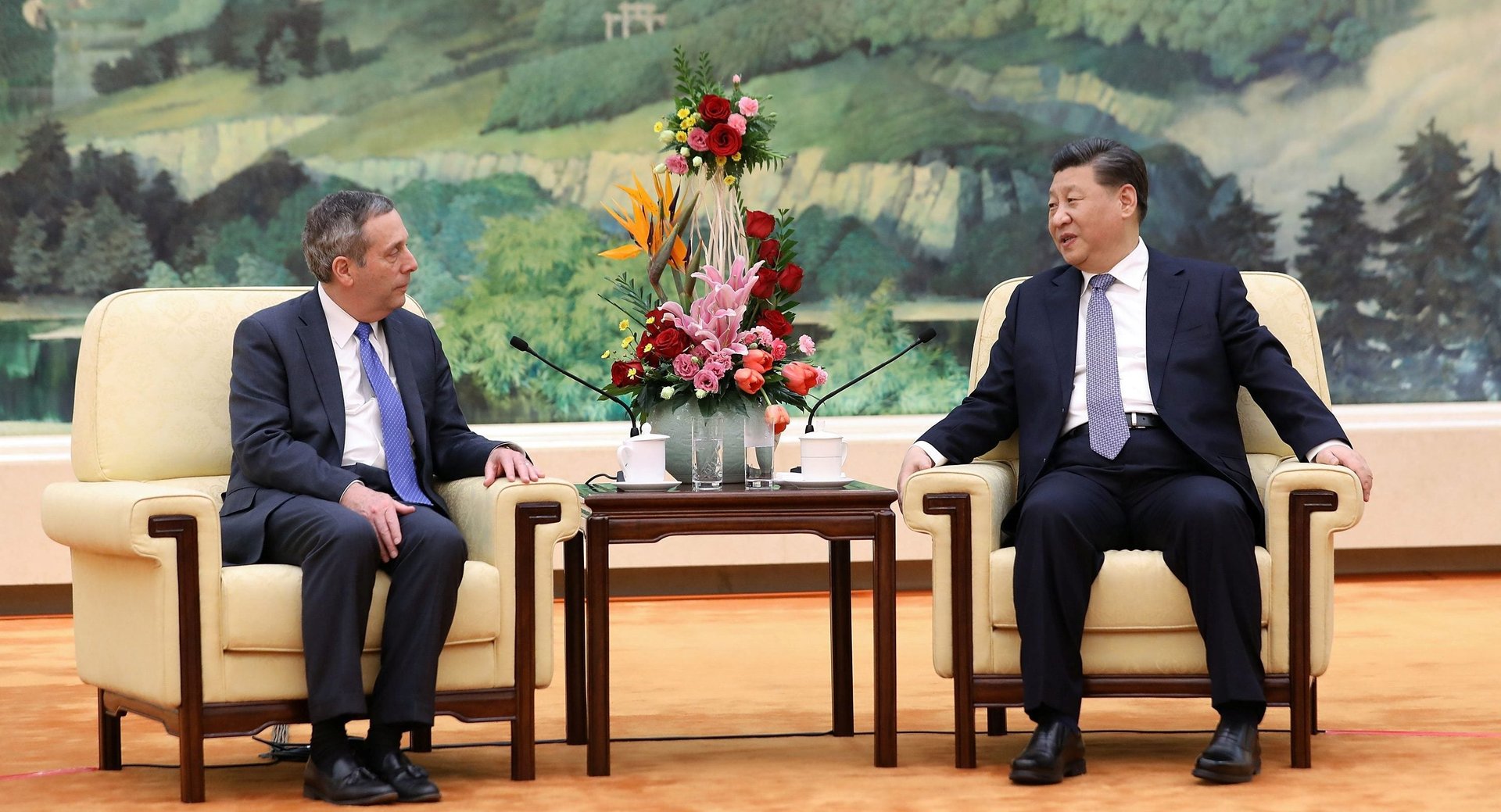Harvard’s president read a Uyghur poem to students at Peking University
Harvard president Lawrence Bacow yesterday (March 20) espoused the values of free speech and academic freedom at one of China’s top universities, even reading out a verse written by a poet from the country’s long-suppressed Uyghur community.


Harvard president Lawrence Bacow yesterday (March 20) espoused the values of free speech and academic freedom at one of China’s top universities, even reading out a verse written by a poet from the country’s long-suppressed Uyghur community.
Bacow’s speech at Peking University also lauded the long and deep ties between the two schools even as Washington and Beijing “are engaged in important and at times difficult discussions over a range of issues.”
The Harvard president’s speech comes at a frosty moment in US-China relations, and amidst increasing repression in the communist country, especially its campuses.
Most surprisingly, Bacow chose to close it with a verse by late Abdurehim Ötkür, whom Bacow called “one of China’s great modern poets”:
Along life’s road I have always sought truth,In the search for verity, thought was always my guide.
My heart yearned without end for a chance of expression,
And longed to find words of meaning and grace.
Come, my friends, let our dialogue joyfully begin.
The reason behind Bacow’s choice is unclear, but his decision comes at a time when China is intensifying its suppression of the Uyghur Muslim minority in Xinjiang. Hundreds of thousands there have been incarcerated in camps that Beijing justifies as necessary to counter terrorism.
The imprisonment of one of the most celebrated contemporary Uyghur poets and musicians, Abdurehim Heyit, was linked to his promotion of Uyghur culture, particularly Ötkür’s poems, according to the Diplomat. It said that Heyit’s last overseas trip was to Turkey in 2015 for an event to mark the 20th anniversary of Ötkür’s death. Media reports in February said Heyit died following two years of incarceration, though Beijing later disputed it through a video showing him alive.
Bacow’s office did not immediately respond to a request for comment.
The US has been increasingly vocal in its criticism of China’s policies in the far western province, with the State Department recently calling them the worst human rights abuses “since the 1930s.” US officials are also considering sanctions against individuals linked to the measures in Xinjiang.
The Harvard chief touched upon other potentially sensitive matters, too.
For instance, he referred to the May Fourth Movement, a student-led, anti-imperialist campaign in 1919 that began in Beijing’s schools, including PKU. The event, he said was “a proud moment in your history that demonstrated to the world a deep commitment on the part of young Chinese to the pursuit of truth—and a deep understanding of the power of truth to shape the future.”
Bacow’s statement was surely not lost on the audience, given China’s tightening grip on student activism in recent months, particularly against PKU students advocating issues ranging from labor rights to gender equality. In November, in a perceived attempt to exert tighter control over students, the government installed a former head of Beijing’s state security office as the new party secretary at PKU. The centenary of the May Fourth Movement is widely seen as one of a number of sensitive anniversaries (paywall) that Beijing must manage in 2019.
In its coverage of Bacow’s visit, neither the Chinese state media nor PKU’s official account on social network WeChat mentioned Ötkür or the May Fourth Movement. A report in state mouthpiece People’s Daily noted (link in Chinese) that his speech focused on the values of “truth, excellent, and opportunity,” fundamental to higher education. Bacow also separately met with Chinese president Xi Jinping.